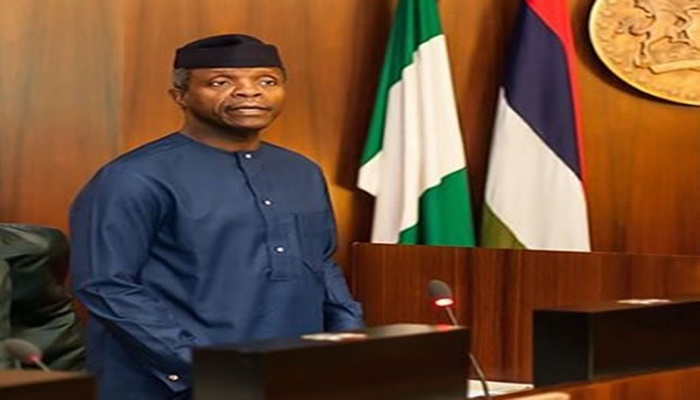CBN not “piggy bank” to FG – Osinbajo
Vice President, Yemi Osinbajo, has described as absurd the allegation that the Central Bank of Nigeria (CBN) is not following due process in the printing of money to support government programmes even as he accused the civil society organizations of not doing enough to support in the Federal Government’s anti-corruption drive.
He made this known at the Nigeria Civil Society Situation Room Dialogue held in Abuja in which he was a guest.
The CBN claims on the federal government between December 2013 and April 2017 for instance, was quoted to have gone from N678 billion to N6.5 trillion ($1.8 billion to $17.3 billion)—an almost 10-fold rise.
These “claims” are made up of overdrafts, treasury bills, converted bonds and other such lending.
The CBN in its recently report published the personal statements of the Monetary Policy Committee (MPC) members from the July meeting.
The personal statement of Dr. Doyin Salami, a well-regarded member of the MPC said the CBN was providing a “piggy-bank” service to the federal government.
But Osinbajo in response to questions from about 70 CSOs present at the event said, “That is certainly false. I think it is very sad that is circulated. I think the whole idea that the CBN is printing money to support government, is completely absurd. And the context on which it was accredited to the person I think it was completely misunderstood.
“If you look at our M1, M2, the amount of money circulated is within appropriate limits. And inflation has continued to go down month by month. Honestly if there is money in circulation way beyond limit then we should expect that inflation will begin to go up. But that is not the case. Of course, there has been a firm up on government borrowing and that is significant and we have been very upfront about what we are doing.
“The DMO is required to publish the debt profile of government regularly and only three weeks ago the last debt profile was published. The government has largely funded its activities through the treasury bills.




